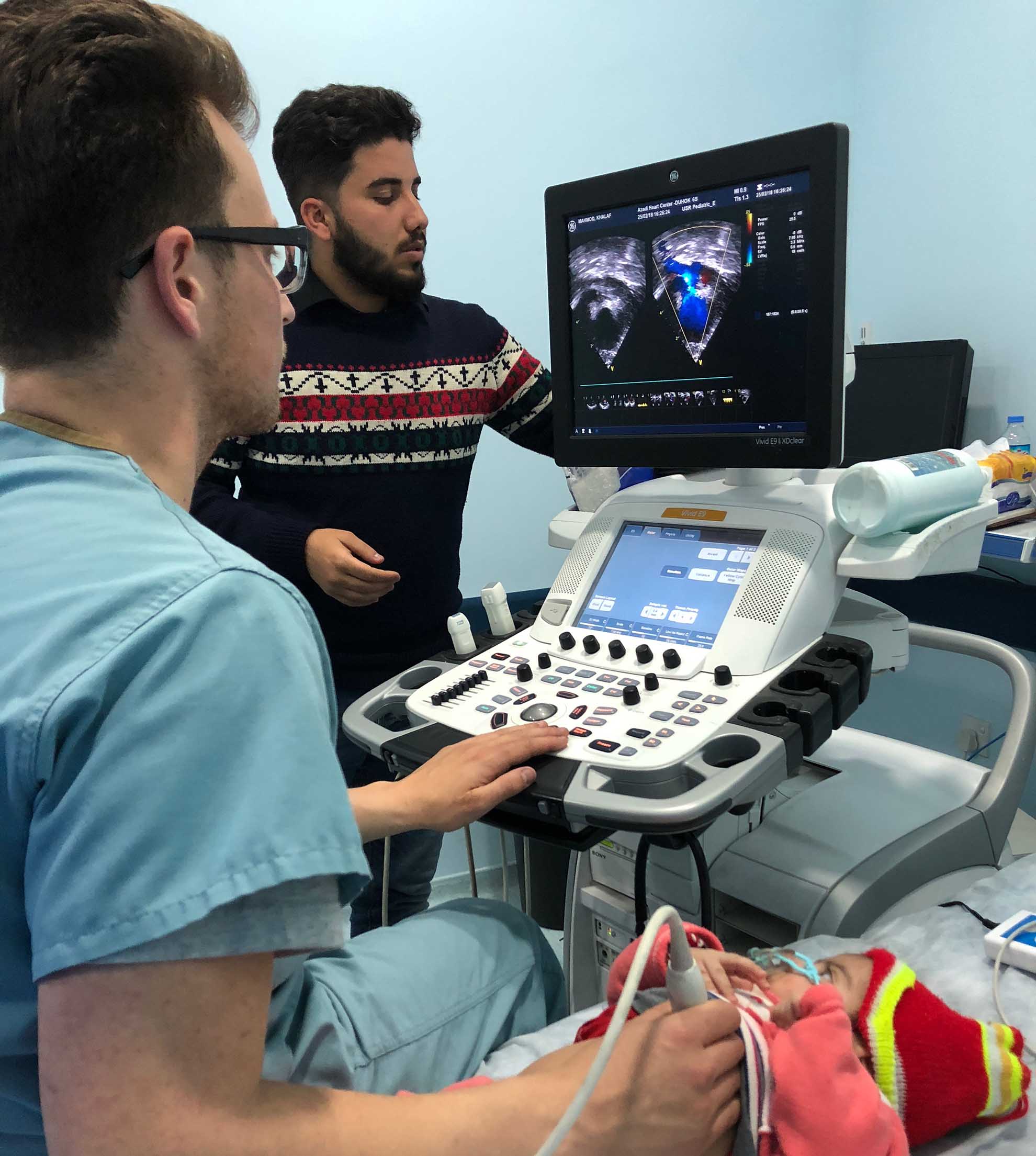INTERESTED IN LEARNING MORE?
REQUEST INFOINTERESTED IN LEARNING MORE?
REQUEST INFOWCUI’s Pediatric Cardiac Ultrasound and Congenital Heart Disease program (Ped ECHO) allows students who have already completed an Adult Cardiovascular Sonography program to gain a comprehensive knowledge of congenital heart disease and to understand the pathology and echocardiographic evaluation of numerous congenital and acquired heart lesions in pediatric patients. Students can complete the program in as few as 9 months. The Ped ECHO course will enable the graduate to be hired as an entry-level echo sonographer able to perform entry level Pediatric Echocardiography. The course will also help prepare the technologist for passing the Pediatric Echocardiography ARDMS registry exam.
When it comes to heart disease in the U.S., we often tend to think of adult conditions, like heart attacks, stroke, etc. But children are also in need of treatment in this area. Around 40,000 babies are born with a congenital heart defect every year, and around 700,000 children have or recently had a heart condition that required treatment. It’s why, at WCUI, we offer a Pediatric Cardiac Ultrasound and Congenital Heart Disease diploma program, so that our graduates can be a part of the effort to diagnose, monitor, and treat heart conditions in pediatric patients.
Pediatric cardiac sonography falls within the same realm as general diagnostic cardiovascular sonography. Both use ultrasound machines and imaging equipment, which produce high-frequency sound waves to take pictures of the person’s organs, tissues, and more. Cardiovascular sonographers — also called echocardiographers — specialize in the imaging to the heart muscles, heart valves, blood flow, and other aspects of the cardiac system, and those who have trained in pediatrics are qualified to take ultrasounds of children’s hearts and vessels as well. This allows their doctor or physician to get a clearer picture of what’s going on in their body and what kinds of treatments they may need in a way that’s gentle and non-invasive.
Pediatric echocardiographers take on the same tasks and responsibilities that other medical sonographers do, just with the additional angle of working with children, some of them only babies. You’ll often be asked to:
Pediatric echocardiographers will help diagnose and monitor all different kinds of heart defects and diseases, including:
Becoming a pediatric echocardiographer generally requires formal education through a certificate or diploma program. WCUI’s Pediatric Cardiac Ultrasound and Congenital Heart Disease diploma program prepares you for an entry-level career in the specialized pediatric echocardiography field, as well as helping you prepare for the necessary registry or certification exams you need in order to qualify for employment.
Pediatric cardiac sonographers should also:
In order to be a cardiac sonographer for the pediatric population, you need to be registered and certified. WCUI has many resources that can help you become eligible for relevant registries upon graduation, and upon completion of our pediatric echocardiography program, graduates are eligible to sit for the ARDMS registry exam in Pediatric Echocardiography (PE).
Through classroom lectures and hands-on experience, including an externship, students in the Pediatric Cardiac Ultrasound and Congenital Heart Disease program will learn:
Our mission and values at WCUI are about promoting the academic excellence and integrity of our graduates in a way that is supportive and contributes positively to our students’ lives. We are here for you, to get you the healthcare education you need for success.
Our pediatric echocardiography diploma program features both lecture-based courses and lab work in:

With the rate of heart defects and heart disease in children remaining fairly steady, there is a continuing need for skilled, specialized personnel to help be a part of their care.
Overall, the Bureau of Labor Statistics expects jobs for sonographers to grow much faster than average — 19% through 2030.
*State of California EDD https://www.labormarketinfo.edd.ca.gov/data/employment-projections.html “Projected growth” represents the estimated change in total employment over the projections period (2018-2028).
**Arizona Commerce Authority https://www.azcommerce.com/oeo/labor-market/employment-projections/ “Projected growth” represents the estimated change in total employment over the projections period (2020-2030)
Those who specialize in the pediatric side of cardiac sonography can work in almost any healthcare facility that dedicates resources to pediatric or cardiac patients. This can include general and research hospitals, as well as children’s hospitals. It can also mean working in:
WCUI’s Pediatric Cardiac Ultrasound and Congenital Heart Disease diploma program (PED Echo) can be completed in as few as 9 months, and students become eligible for the relevant ARDMS registry exam upon graduation. Applicants to the PedECHO program must have already completed an Adult Cardiovascular Sonography program to be eligible to enroll.
In response to COVID-19, WCUI has moved to a hybrid educational model so your education doesn’t miss a beat. Our program combines online lecture classes with in-person ultrasound labs and 6-months of externship at a hospital or clinical site.
WCUI was founded by well-respected medical professionals, and we’ve been using our experience and knowledge to help our students begin successful careers for over 20 years. We’ve been accredited by the Accrediting Commission of Career Schools and College as a private post-secondary vocational school since 2001.
Are you ready to advance your career by advancing your education? Find the information you need to apply to the WCUI School of Medical Imaging on our Admissions Page or contact our admissions team today.
Join our upcoming information sessions with the WCUI Academic Dean of Sonography, who can help answer your questions about the field of cardiovascular sonography and your future career!
ENROLLING NOW! Now enrolling for Spring Term starting April 1